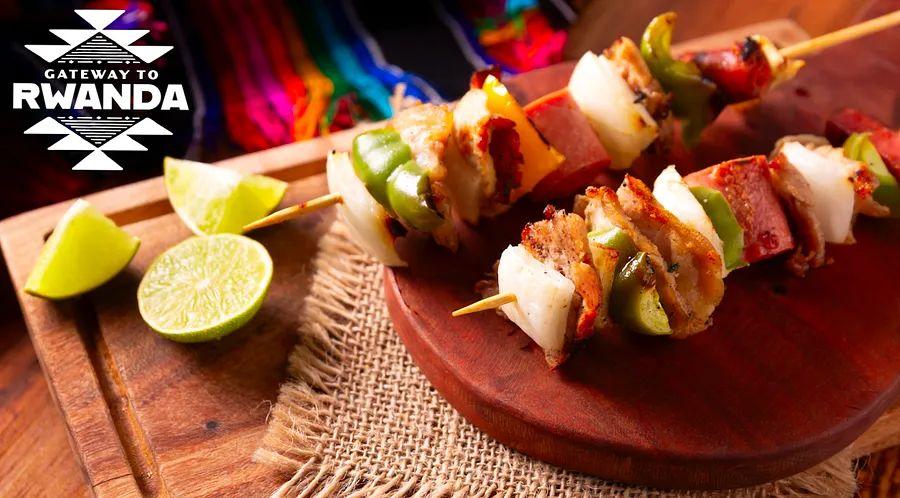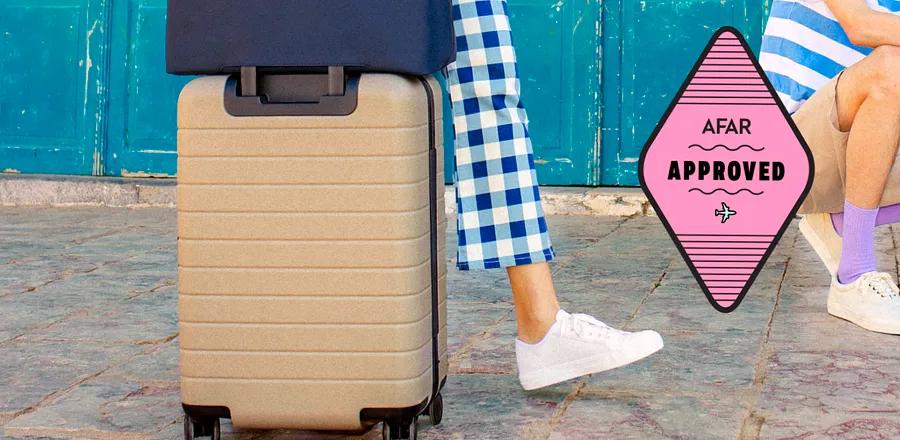Rwanda's Culinary Landscape: A Taste of the Nation

Nestled between Congo, Uganda, and Tanzania, Rwanda is a compact, landlocked nation in East Africa that offers a captivating blend of cultural experiences, rich wildlife, and vibrant arts. Whether you're exploring the bustling streets of Kigali or unwinding by the shores of Lake Kivu, one of Africa's seven Great Lakes, you can savor the flavors of this resilient nation through its diverse local and regional dishes that enrich your travels in Rwanda.
Known as the “Land of a Thousand Hills,” Rwanda features hilly and fertile landscapes where lush vegetation flourishes atop rich, red soil, creating a vibrant and colorful environment. Many families, especially in rural areas, depend on subsistence farming, cultivating crops on a small scale. As a result, a typical Rwandan diet includes staples like cassava leaves, plantains, bananas, avocados, corn, millet, and beans. Here are some must-try dishes in Rwanda.
 One of the most common dishes in Rwanda is ugali, a staple side found throughout sub-Saharan Africa © Getty Images
One of the most common dishes in Rwanda is ugali, a staple side found throughout sub-Saharan Africa © Getty ImagesThe Essentials of Rwandan Cuisine
One of the most common dishes in Rwanda is ugali, a staple side found across sub-Saharan Africa. This dense, porridge-like ball of essential carbohydrates is made primarily from maize flour, sometimes blended with cassava flour. Ugali acts as a perfect base for the rich stews, curries, and sauces that define Rwandan culinary traditions.
Speaking of stews, the crown jewel of Rwandan cuisine is arguably isombe, a hearty stew made from cassava leaves ground into a deep-green paste. This paste is simmered in savory beef, chicken, or fish broth with onions, spinach, or peppers, and is finished off with a dollop of fresh peanut butter, spices, and a drizzle of palm oil for extra depth.
No Rwandan meal is complete without matoke, a sweeter version of mashed potatoes made from matoke bananas, native to the African Great Lakes region. These short, starchy bananas are harvested while still green, then steamed in their leaves through a meticulous process before being mashed. The result is a deliciously savory dish with a hint of sweetness.
 Kigali's vibrant markets showcase a blend of East African, European, Chinese, and Indian influences © Getty Images
Kigali's vibrant markets showcase a blend of East African, European, Chinese, and Indian influences © Getty ImagesThe Flavors of the City
In cities like Kigali, a fusion of East African, European, Chinese, and Indian flavors has resulted in a diverse culinary scene. Here, you'll find an array of meat dishes, such as brochettes—skewers of beef, goat, fish, or pork seasoned with chilis and grilled alongside onions or peppers. Other highlights include agatogo, a hearty stew featuring plantains, cassava leaves or spinach, paired with beef or goat, and akabenz, a tangy, dry-fried lime barbeque pork.
Many restaurants also offer sides like potato chips or Indian-style chapati flatbreads to complement the main dishes. A popular option is igisafuria, a robust meal akin to a Moroccan tagine. The term comes from the Kinyarwanda word for ‘pot.’ In igisafuria, ingredients like chicken, beef, or goat, along with vegetables such as plantains, potatoes, and onions, are slow-cooked in one pot, allowing the flavors to meld beautifully.
 Sambaza fish caught by singing fishermen on Lake Kivu, Rwanda © Holger Leue / Getty Images
Sambaza fish caught by singing fishermen on Lake Kivu, Rwanda © Holger Leue / Getty ImagesIn Nyamirambo, Kigali’s Muslim district, the highlight is the ‘big fish,’ a whole tilapia grilled with onions, garlic, and carrots, delivering a unique smoky flavor. This dish is typically meant for 2-3 people and enjoyed by hand. On the shores of eastern Lake Kivu, you’ll find sambaza, a small sardine-like fish often served as a starter. Deep-fried in batter and accompanied by lemon and a spicy pili pili sauce made from chili and habanero peppers, sambaza makes for a delightful snack after a day of lake exploration.
 Rwanda’s fertile volcanic soil and high altitudes provide perfect conditions for coffee cultivation © Getty Images
Rwanda’s fertile volcanic soil and high altitudes provide perfect conditions for coffee cultivation © Getty ImagesThe Land of Coffee and Tea
Rwanda’s fertile volcanic soil and high elevations create perfect conditions for coffee cultivation, which, along with tea, ranks among the country's top exports.
Nearly half a million small farmers cultivate coffee across Rwanda, from the northern Virunga region—home to the silverback mountain gorillas in Volcanoes National Park—to Akagera in the southeast, which boasts the nation’s only Big Five destination, Akagera National Park. The most renowned coffee-growing area is around Gisenyi, by the shores of Lake Kivu, where visitors can explore locations like the Kinunu Washing Station with its lake views or the Ingoboka Collective on Nyamirundi Island to discover Rwanda’s celebrated Bourbon Arabica coffee.
Kigali has a vibrant coffee culture, highlighted by places like Question Coffee in Gishushu, which empowers over 30,000 women coffee growers across the nation, and Rubia Coffee Roasters in Kimihurura, a specialty roastery and café that continues to grow in popularity.
 Beyond the capital, tea is a beloved beverage, enjoyed throughout the day sweetened with milk and sugar © Stella Levi / Getty Images
Beyond the capital, tea is a beloved beverage, enjoyed throughout the day sweetened with milk and sugar © Stella Levi / Getty ImagesWhile Rwanda is known for its award-winning coffee exports, most locals have traditionally favored tea. Outside the capital, tea is a popular beverage, enjoyed sweetened with milk and sugar throughout the day. To witness the tea-growing process, head to the southwestern Nyungwe region, renowned for its ancient rainforest and rolling hills blanketed with tea plants. Estates like Gisovu and Gisakura welcome visitors to their plantations. At One & Only Nyungwe House, situated within a working tea plantation in Gisakura, guests can experience picking, drying, and brewing their own Nyungwe tea.
Beyond coffee and tea, another essential drink to try in Rwanda is urwagwa, or banana beer. This homebrewed delicacy is especially popular in rural areas but can also be found in urban settings. Urwagwa is crafted from bananas that ferment underground for several days, then mashed using grass blades to extract juice. Ground millet or sorghum is mixed in before the concoction ferments for a few more days. With the addition of honey, this sweet-and-sour beverage can be enjoyed for up to three months.
Located near Volcanoes National Park, Red Rocks Rwanda is a social enterprise offering a record label, restaurant, community tourism initiatives, and a craft shop. They provide classes on making and tasting urwagwa, complemented by lively dancing, songs, and socializing during the beer-making process.
Evaluation :
5/5



